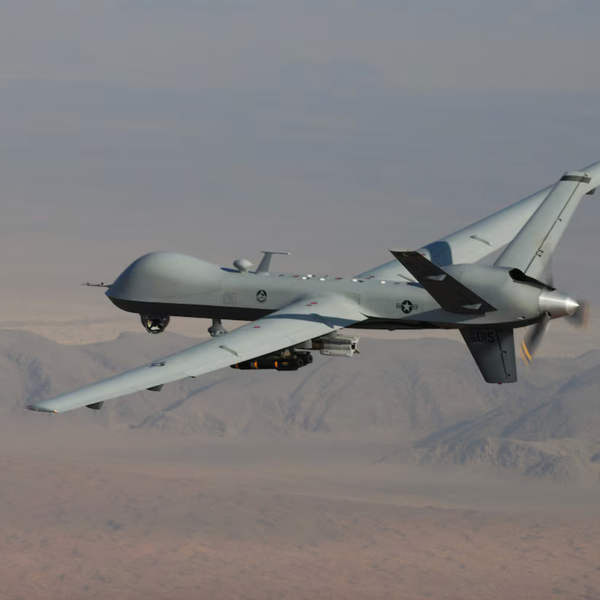U.S. Poised to Commit War Crimes in Marjah
The United States and NATO are poised to launch a major assault in the
Marjah district in southern Afghanistan. Tens of thousands of Afghan
civilians are in imminent peril. Will President Obama
and Congress act to protect civilians in Marjah, in compliance
with the obligations of the United States under the laws of war?
Few civilians have managed to escape the Afghan town of Marjah ahead
of a planned US/NATO assault, raising the risk of civilian casualties,
McClatchy News reports.
Under the laws of war, the US and NATO -- who have told civilians not
to flee -- bear an extra responsibility to control their fire and avoid
tactics that endanger civilians, Human Rights Watch notes.
"I suspect that they believe they have the ability to generally
distinguish between combatants and civilians," said Brad Adams of
Human Rights Watch. "I would call that into question, given their long
history of mistakes, particularly when using air power. Whatever they
do, they have an obligation to protect civilians and make adequate
provision to alleviate any crisis that arises," he said. "It is very
much their responsibility."
"If [NATO forces] don't avoid large scale civilian casualties, given
the rhetoric about protecting the population, then no matter how many
Taliban are routed, the Marjah mission should be considered a
failure," said an analyst with the International Crisis Group.
A report in the Wall Street Journal cast
fresh doubt on the ability -- and even on the
interest -- of U.S. forces to distinguish combatants from
civilians. "Across southern Afghanistan, including the Marjah district
where coalition forces are massing for a large offensive, the line
between peaceful villager and enemy fighter is often blurred," the
Journal says. The commander of the U.S. unit responsible for
Pashmul estimates that about 95% of the locals are Taliban or aid the
militants. Among front-line troops, "frustration is boiling over" over
more restrictive rules of engagement than in Iraq, the
Journal says -- a dangerous harbinger of potential war crimes
when the U.S. is about to engage in a major assault in an area densely
populated with civilians.
Today, AFP reports, military
helicopters dropped leaflets over Marjah as radio broadcasts "warned
residents not to shelter Taliban ahead of a massive assault." Doesn't
this suggest that the invading U.S. forces may regard any civilian
alleged to be "sheltering Taliban" as a legitimate target, including
women and children?
If the U.S. assault in Marjah results in large scale civilian
casualties, the U.S. will have committed a major war crime. If the
United States cannot protect civilians in Marjah, as the U.S. is
required to do under the laws of war, the
assault should be called off. Under international law, every U.S.
citizen is legally obligated to work to bring about the compliance of
the United States with international law. Raise your voice now,
before it is too late.
An Urgent Message From Our Co-Founder
Dear Common Dreams reader, The U.S. is on a fast track to authoritarianism like nothing I've ever seen. Meanwhile, corporate news outlets are utterly capitulating to Trump, twisting their coverage to avoid drawing his ire while lining up to stuff cash in his pockets. That's why I believe that Common Dreams is doing the best and most consequential reporting that we've ever done. Our small but mighty team is a progressive reporting powerhouse, covering the news every day that the corporate media never will. Our mission has always been simple: To inform. To inspire. And to ignite change for the common good. Now here's the key piece that I want all our readers to understand: None of this would be possible without your financial support. That's not just some fundraising cliche. It's the absolute and literal truth. We don't accept corporate advertising and never will. We don't have a paywall because we don't think people should be blocked from critical news based on their ability to pay. Everything we do is funded by the donations of readers like you. Will you donate now to help power the nonprofit, independent reporting of Common Dreams? Thank you for being a vital member of our community. Together, we can keep independent journalism alive when it’s needed most. - Craig Brown, Co-founder |
The United States and NATO are poised to launch a major assault in the
Marjah district in southern Afghanistan. Tens of thousands of Afghan
civilians are in imminent peril. Will President Obama
and Congress act to protect civilians in Marjah, in compliance
with the obligations of the United States under the laws of war?
Few civilians have managed to escape the Afghan town of Marjah ahead
of a planned US/NATO assault, raising the risk of civilian casualties,
McClatchy News reports.
Under the laws of war, the US and NATO -- who have told civilians not
to flee -- bear an extra responsibility to control their fire and avoid
tactics that endanger civilians, Human Rights Watch notes.
"I suspect that they believe they have the ability to generally
distinguish between combatants and civilians," said Brad Adams of
Human Rights Watch. "I would call that into question, given their long
history of mistakes, particularly when using air power. Whatever they
do, they have an obligation to protect civilians and make adequate
provision to alleviate any crisis that arises," he said. "It is very
much their responsibility."
"If [NATO forces] don't avoid large scale civilian casualties, given
the rhetoric about protecting the population, then no matter how many
Taliban are routed, the Marjah mission should be considered a
failure," said an analyst with the International Crisis Group.
A report in the Wall Street Journal cast
fresh doubt on the ability -- and even on the
interest -- of U.S. forces to distinguish combatants from
civilians. "Across southern Afghanistan, including the Marjah district
where coalition forces are massing for a large offensive, the line
between peaceful villager and enemy fighter is often blurred," the
Journal says. The commander of the U.S. unit responsible for
Pashmul estimates that about 95% of the locals are Taliban or aid the
militants. Among front-line troops, "frustration is boiling over" over
more restrictive rules of engagement than in Iraq, the
Journal says -- a dangerous harbinger of potential war crimes
when the U.S. is about to engage in a major assault in an area densely
populated with civilians.
Today, AFP reports, military
helicopters dropped leaflets over Marjah as radio broadcasts "warned
residents not to shelter Taliban ahead of a massive assault." Doesn't
this suggest that the invading U.S. forces may regard any civilian
alleged to be "sheltering Taliban" as a legitimate target, including
women and children?
If the U.S. assault in Marjah results in large scale civilian
casualties, the U.S. will have committed a major war crime. If the
United States cannot protect civilians in Marjah, as the U.S. is
required to do under the laws of war, the
assault should be called off. Under international law, every U.S.
citizen is legally obligated to work to bring about the compliance of
the United States with international law. Raise your voice now,
before it is too late.
The United States and NATO are poised to launch a major assault in the
Marjah district in southern Afghanistan. Tens of thousands of Afghan
civilians are in imminent peril. Will President Obama
and Congress act to protect civilians in Marjah, in compliance
with the obligations of the United States under the laws of war?
Few civilians have managed to escape the Afghan town of Marjah ahead
of a planned US/NATO assault, raising the risk of civilian casualties,
McClatchy News reports.
Under the laws of war, the US and NATO -- who have told civilians not
to flee -- bear an extra responsibility to control their fire and avoid
tactics that endanger civilians, Human Rights Watch notes.
"I suspect that they believe they have the ability to generally
distinguish between combatants and civilians," said Brad Adams of
Human Rights Watch. "I would call that into question, given their long
history of mistakes, particularly when using air power. Whatever they
do, they have an obligation to protect civilians and make adequate
provision to alleviate any crisis that arises," he said. "It is very
much their responsibility."
"If [NATO forces] don't avoid large scale civilian casualties, given
the rhetoric about protecting the population, then no matter how many
Taliban are routed, the Marjah mission should be considered a
failure," said an analyst with the International Crisis Group.
A report in the Wall Street Journal cast
fresh doubt on the ability -- and even on the
interest -- of U.S. forces to distinguish combatants from
civilians. "Across southern Afghanistan, including the Marjah district
where coalition forces are massing for a large offensive, the line
between peaceful villager and enemy fighter is often blurred," the
Journal says. The commander of the U.S. unit responsible for
Pashmul estimates that about 95% of the locals are Taliban or aid the
militants. Among front-line troops, "frustration is boiling over" over
more restrictive rules of engagement than in Iraq, the
Journal says -- a dangerous harbinger of potential war crimes
when the U.S. is about to engage in a major assault in an area densely
populated with civilians.
Today, AFP reports, military
helicopters dropped leaflets over Marjah as radio broadcasts "warned
residents not to shelter Taliban ahead of a massive assault." Doesn't
this suggest that the invading U.S. forces may regard any civilian
alleged to be "sheltering Taliban" as a legitimate target, including
women and children?
If the U.S. assault in Marjah results in large scale civilian
casualties, the U.S. will have committed a major war crime. If the
United States cannot protect civilians in Marjah, as the U.S. is
required to do under the laws of war, the
assault should be called off. Under international law, every U.S.
citizen is legally obligated to work to bring about the compliance of
the United States with international law. Raise your voice now,
before it is too late.

